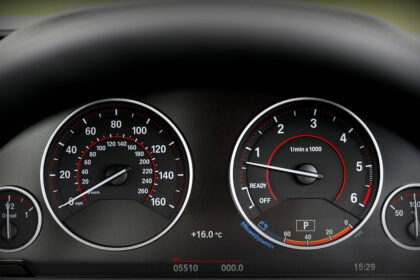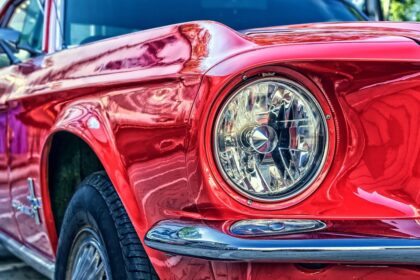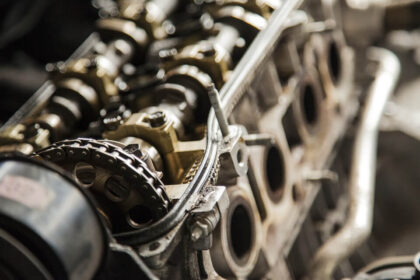One of the lesser-known facts about buying a car in Kenya is that direct car imports are far cheaper than car yard purchases.
Even with this valuable tip, most car buyers still lose how to start and handle the importation process.
They opt for the seemingly convenient yet expensive method of purchasing vehicles locally.
But fret not, at Best Cars for Sale in Kenya, we are here to take the mystery out of car importation and help you import cars from the UK to Kenya.
The process is transparent, affordable, and fast, and it also offers you the priceless option of ordering the exact car you want.
Below is all you need to know if you wish to import cars to Kenya from the UK.
Importing Cars from the UK to Kenya: How to Do it Right
The advantages
1. Unlimited choices
Car manufacturers try to offer different specifications in their cars. Often, a particular model will come in various trims, styles, options, and packages.
Some options are for enhanced comfort, while others are for increased safety and security. While a base model only has the basic features, high-end trims mean bonus features, added comfort, and safety.
That is why one car may come with leather seats and driving assist features while another may not, even though they both belong to the same model.
Most of the vehicles you find in Kenyan car yards are the base models.
That is primarily because high-end trims attract higher prices that some novice buyers might be unwilling to pay.
However, for the discerning motorist who wishes to have better specs in their car, importing their vehicle is the best way to get a car with their preferred trim specifications.
2. Cost
As mentioned before, the cost of importing a car from the UK to Kenya is tremendously lower.
Importing a vehicle through Best Cars for Sale in Kenya can save up to 20% of the costs of purchasing that vehicle locally.
These lower costs are made possible because you do not have to cater for local storage and maintenance charges that otherwise apply to cars sold at a local yard.
Also, Best Cars for Sale in Kenya even provide you with a 3-month free insurance cover when you import your vehicle with the company.
It also offers the option of paying in installments as you await the car’s arrival! Why take a loan to purchase a base model locally when you can have the vehicle of your dreams under a flexible payment scheme?
3. Convenient and secure
Compared to handling the importation yourself, Best Cars for Sales in Kenya help you with the entire process and deliver the vehicle to you fully cleared and registered under Kenyan Laws.
Also, since the company is locally registered, you have the assurance of knowing the individuals you are dealing with, which is a safer option than dealing with UK sellers directly.
4. Untampered mileage & accident-free
Some unscrupulous local dealers may tamper with the vehicle’s mileage to represent the cars as newer than they are.
With locally used vehicles, the problem is worsened by some past owners who may tamper with the mileage and cannot disclose the vehicle’s accident and poor service history.
With imports, you get to avoid such headaches.
The Importation process
Best Cars for Sale in Kenya complies with all the legal requirements while sourcing your ordered vehicle to ensure smooth clearance and registration of your car locally.
If we feel that your desired car might not meet some of these requirements, we will advise you accordingly before the process can begin.
The importation process begins with identifying your vehicle and choosing its acquisition method.
Imports are bought in two ways. One is via direct purchase, and the second is via auction sales.
Direct purchases involve visiting a UK car dealership’s website and identifying a vehicle that aligns with your preferred specifications.
Once we identify the right car, we request an invoice from the dealer, which details the price we shall be required to pay and the dealership’s preferred payment method.
Typically, most sellers work with wire transfers or PayPal payments.
Read also: Most reliable cars in Kenya.
We visit UK auction sites with auction purchases and scope out what is on sale.
The best thing about purchasing from an auction is that you get to know the vehicle’s exact condition from the auction sheet provided by the auction house.
With the auction sheet, you can tell the vehicle’s service history, which parts have been changed, which parts need replacement, etc.
Once you find a good car, we place a bid and wire a deposit for it. If it proves to be a winning bid, then we wire the purchase price balance.
Should your bid be unsuccessful, the deposit is refunded in full or channeled towards another offer as per your instructions.
Before the shipping process can begin, we will take your vehicle to a KEBS-approved inspection center in the UK for a comprehensive check.
That includes internal and external inspections, wiring, odometer, and radioactivity checks. We issued it with an inspection sticker, and the shipping process began.
Knowing which vehicles can pass an inspection check is essential because, without an inspection sticker, the car will not be allowed entry into Kenya.
For that reason, having your imports handled by experts is vital.
For more information, please get in touch with us through [email protected]. You can also phone or WhatsApp us at +254728308043.
Common Importation queries
How do I ship a car from the UK to Kenya?
UK car exports to Kenya fall under two shipping categories.
You can either have the vehicle ferried in a container or set up on a “Roll-on Roll-off” (RoRo) platform. Container shipments attract a higher charge, but they also guarantee that the vehicle will be reasonably safe and unlikely to be damaged in transit.
RoRo shipments comprise driving the car onto a shared platform on the ship alongside other vehicles. While cheaper, the RoRo method exposes the car to its surroundings during shipping.
How much does shipping a car from the UK to Kenya cost?
The cost of shipping a car from the UK to Kenya depends on your chosen shipping method.
RoRo costs are calculated based on the volume of your shipment, which is calculated in cubic meters.
Container shipment costs are assessed by the shipping company based on the container size involved.
We shall give you comprehensive information regarding all the charges involved. These include inspection duty payable, applicable waivers, shipping, clearing, registration, and delivery to you from the port of Mombasa.
How much does importing a car from the UK to Kenya cost to import?
The cost of importing a car from the UK to Kenya depends on the car’s year of registration, its Current Retail Selling Price (CRSP), and the taxes applicable.
Import duty is typically pegged at 25% of the CRSP. Excise duty is the sum of import duty plus 20% CRSP, while VAT is the sum of Excise duty, import duty, and 16% of the CRSP.
Please visit the online KRA portal to access the import duty calculator.
Is it cheaper to import a car from the UK?
Importing cars to Kenya from the UK is cheaper than purchasing an imported car locally.
When you go for the UK used cars for export to Kenya, you free yourself of the mark-up costs charged by local car dealerships on their vehicles.
Imports are also free of the local storage and maintenance charges that usually apply to locally sold models.
See: Affordable family cars in Kenya
What do I need to import a vehicle from the UK?
You will need several documents to import cars to Kenya from the UK. These include.
- The Original Commercial Invoice issued by the seller
- The vehicle’s original logbook is from the country of origin.
- Certificate of roadworthiness of the vehicle. Also known as a per-shipment inspection certificate.
- Bill of Lading that’s issued by the shipping company/ carrier.
- A copy of your Kenyan PIN certificate where the buyer is a company, a copy of the certificate of incorporation.













